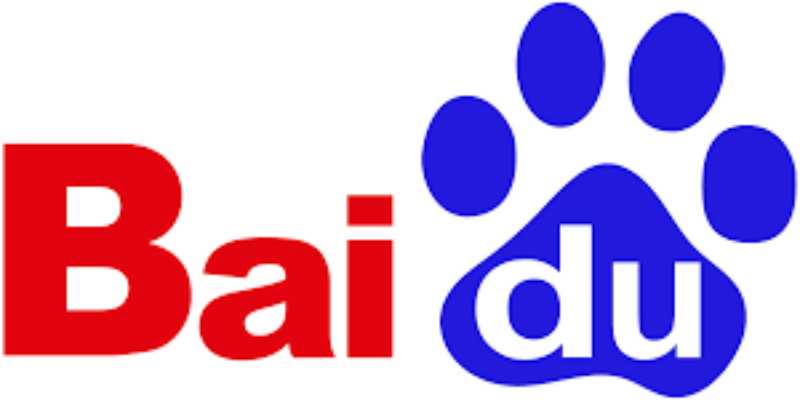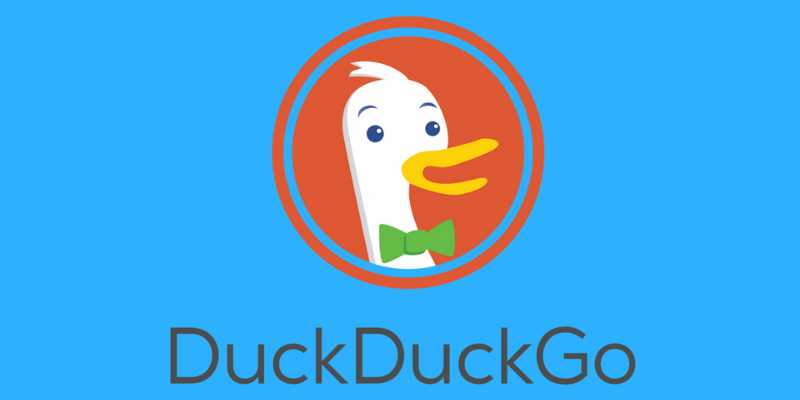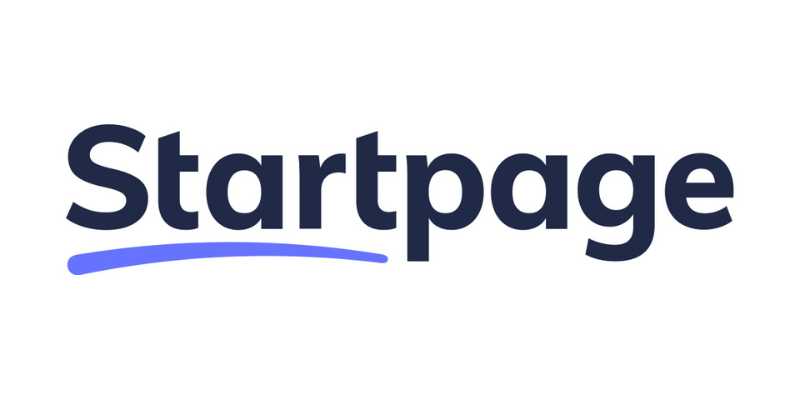In today’s fast-paced digital world, everyone searches. They look for answers, products, services, and more. But with the internet vastness, finding the right answer can feel like searching for a needle in a haystack.
Did you know that as of 2023, over 5.5 billion searches happen daily? That’s a staggering number. Yet, many businesses and individuals aren’t tapping into the power of the right search engines. They’re missing out on visibility, traffic, and potential growth.
That’s where understanding the top search engines comes into play. Search engines have evolved. They’re smarter, more intuitive, and vital in modern-day information retrieval. By diving deep into the top search engines of 2023, you can align your strategies, harness their features, and connect with the right audience more effectively.
Stay tuned as we unveil where the world searches online in 2023.
1. Google: The Uncontested King

Google started in 1998. Two Stanford students, Larry Page and Sergey Brin, had a vision. They wanted to organize the world’s information. Fast forward to today, and Google dominates. It’s not just a search engine. It’s a phenomenon.
So, why does Google stay on top?
First, their algorithm. Google’s algorithm is smart. It’s always learning. Every time you search, it gets better. They’ve rolled out updates like Panda, Penguin, and BERT. These updates prioritize user experience and high-quality content.
Second, Google doesn’t just stop at search. Think about Google Maps, Google My Business, and Google Lens. They’ve integrated their services into every facet of our digital lives.
Did you know? As on April 2021, Over 92.54% of all global searches happen on Google. That’s dominance.
Recently, they’ve pushed boundaries further. AI-driven search predictions. More intuitive voice search. Augmented reality in search results. They’re not just leading; they’re redefining what search means.
For marketers and businesses, this is golden. Being on Google is not optional. It’s a must. Understand Google, and you understand the pulse of the online world. See how we helped an Automotive company achieve an 1891% increase in traffic through effective SEO strategies
2. Bing: Microsoft’s Challenger

Let’s talk about Bing. Launched in 2009, Bing was Microsoft’s answer to Google. While many saw it as just another search engine, savvy marketers knew better.
What makes Bing different? It’s their approach to user experience. Bing places a strong emphasis on visuals. Their homepage? Stunning daily images. Hover over them, and you’ll find interesting trivia bites. It’s not just about search; it’s about engagement.
Now, Microsoft is no newbie to the tech scene. Bing isn’t a standalone product. It’s woven into the fabric of the Microsoft ecosystem. From Windows to Office 365, Bing is there, right in the mix. For instance, ever used Cortana on Windows? Guess what powers its searches? That’s right, Bing.
But it’s the unique tools that truly make Bing shine. Bing Rewards, for one, incentivizes users to search. Search on Bing, earn points, and redeem them. Simple, yet effective. They also have a strong foothold in video searches, often providing more relevant video results than competitors.
| Fact: In some verticals, especially e-commerce, Bing Ads often delivers a higher ROI than Google Ads. It’s a smaller audience, but they’re ready to buy. |
So, while Google may be the giant, Bing offers its own set of advantages. Embracing them could be your next big marketing win.
3. Baidu: Dominating the Chinese Market

China, With over 1bllion internet users, it’s a digital frontier like no other. And when we talk about online search in China, one name stands tall: Baidu.
Started in 2000 by Robin Li and Eric Xu, Baidu quickly became the beacon of China’s digital transformation. While the Great Firewall restricts many Western platforms in China, Baidu flourished, filling the void and becoming an essential part of the Chinese internet experience.
But Baidu isn’t just “the Google of China”. It has its own identity. Tailored services cater specifically to Chinese netizens. Baidu Tieba, their communication platform, or Baidu Baike, a Wikipedia-style encyclopedia, are just a couple of examples. They’ve even ventured into AI and autonomous driving with Baidu Apollo.
Now, how does Baidu stack up against the Western bigwigs? Well, while Google’s algorithm emphasizes link quality, Baidu focuses more on page relevance. Baidu is also more stringent about site verification, ensuring the authenticity of businesses that appear in search results.
Another key distinction? Baidu’s deep integration with the Chinese language and understanding of local nuances. It’s optimized for Mandarin searches, making it incredibly efficient for its primary audience.
While Western marketers may be more accustomed to the Googles and Bings, understanding Baidu is crucial. Why? Because if you’re looking to tap into the massive Chinese market, Baidu isn’t just an option; it’s THE platform.
4. Yahoo!: The Resilient Veteran

Yahoo! Remember the exclamation mark? It’s more than just a brand; it’s a part of internet folklore. Founded in 1994 by Jerry Yang and David Filo, Yahoo! began as a directory of websites. It wasn’t just another company; it was a pioneer of the early web.
Let’s stroll down memory lane. Before the era of personalized feeds and AI recommendations, Yahoo!’s portal was the digital gateway for many. News, email, sports, finance – it was all there. And who could forget Yahoo! Messenger? It defined online chats for an entire generation.
The ecosystem is where Yahoo! really shined. Take Yahoo! Mail, for instance. Even today, it’s one of the most widely used email services worldwide. Then there’s Yahoo! Finance, a go-to for many seeking financial news and stock market insights.
But the digital landscape is ever-evolving. Giants like Google and Facebook changed the game. So, where does Yahoo! stand now?
Today, Yahoo! has undergone numerous transformations, acquisitions, and management shifts. Under the umbrella of Verizon Media, it now focuses on its strengths. While it might not be the top search choice for many, its other platforms, especially Yahoo! Finance and Yahoo! Sports, continue to draw significant traffic.
For marketers, Yahoo!’s ad network still offers lucrative opportunities, especially for certain demographics. It might not be the superstar it once was, but it’s far from fading away. In a world of rapid digital changes, Yahoo! remains a testament to adaptability and resilience.
5. Yandex: Russia’s Pride

When we venture into the vast digital realm of Russia, Yandex takes center stage. Founded in 1997 by Arkady Volozh and Ilya Segalovich, Yandex started as a search engine, but it quickly became synonymous with the Russian internet itself.
Let’s get a glimpse of Russia’s digital canvas. Russia, with its unique culture, language, and regulations, has always presented a different set of challenges and opportunities. While global giants like Google have made inroads, Yandex, deeply rooted in understanding local nuances, remains the dominant force.
So, what’s the secret sauce behind Yandex’s success? For starters, its algorithm is tailored meticulously for the Russian language. It understands the intricacies, the idioms, the context – making search results incredibly relevant.
But Yandex is more than just a search engine. Dive deeper, and you’ll find a galaxy of services. Yandex.Taxi, their ride-hailing service, competes fiercely with the likes of Uber. Yandex.Disk offers cloud storage, and Yandex.Music? It’s the Spotify for Russia.
The ecosystem is where things get really interesting. Yandex seamlessly integrates its search with other platforms. Ever tried Yandex.Browser? It offers a unique browsing experience with tight integration to their services. The synergy between their offerings ensures that once you’re in the Yandex universe, you get a holistic experience.
For anyone eyeing the Russian market, understanding Yandex isn’t just recommended; it’s imperative. Because in Russia, while the world might Google, they Yandex.
6. DuckDuckGo: Prioritizing Privacy

In an age where data feels more exposed than ever, one search engine dares to be different: DuckDuckGo. Its motto? “Privacy, simplified.” Born in 2008, this search platform emerged as the antithesis to data-hungry giants.
The digital winds are changing. Users are more privacy-conscious. They’re wary of being tracked, of having every search noted and monetized. That’s where privacy-centric search engines like DuckDuckGo come into the picture. They’re not just alternatives; they’re becoming the preferred choice for the discerning netizen.
Now, let’s unpack DuckDuckGo’s commitment to privacy. Unlike many of its peers, DuckDuckGo doesn’t store personal information. No search histories, no tracking your IP, nothing. When you search here, you leave no digital footprint. That’s revolutionary in today’s age.
But privacy isn’t its only strength. The user experience is refreshingly clean. The interface? Minimalist. It’s free from cluttered ads, ensuring users get straight to the information they need. Plus, with features like ‘bangs’, users can directly search on other sites from DuckDuckGo’s search bar. Efficient and effective.
In a world where our online privacy often feels compromised, DuckDuckGo stands as a beacon of hope. It proves that search can be powerful, efficient, and yet, private. For marketers, businesses, and users alike, it’s time to take notice. In the realm of search, privacy is the new gold standard.
7. Ecosia: Searching for a Greener Tomorrow

In the vast landscape of search engines, Ecosia stands out, but not just for its algorithms. It stands out for its heart. Ecosia isn’t just a search engine; it’s a mission, a pledge, a promise to our planet.
Imagine searching for your favorite recipe or the latest news and contributing to a greener Earth simultaneously. That’s Ecosia’s genius. Their promise? ‘Search and plant a tree’. With each search you make, you inch closer to planting an actual tree. It’s not metaphorical; it’s real change.
Now, how does this work? Ecosia uses its profits from search ad revenue for tree planting. They transparently publish their financials, allowing users to see exactly where and how funds are utilized. Till now, they’ve planted millions of trees, combating deforestation, restoring habitats, and supporting local communities in the process.
But how does the world feel about it? Overwhelmingly positive. User feedback often goes beyond the platform’s efficiency. People feel good using Ecosia. It’s not just another online task; it’s a contribution to a greater good. Each search makes a user an eco-warrior.
Ecosia’s global impact? Immense. From Brazil to Burkina Faso, they’re changing landscapes, one search at a time. In a digital age often criticized for its carbon footprint, Ecosia offers a breath of fresh air. It’s a model of how tech can be harnessed not just for profit, but for purpose.
So, the next time you search, choose Ecosia. Because with each click, you’re not just finding answers, you’re planting hope.
8. StartPage: Another Leap for Privacy

In a world that thrives on data, privacy feels like a luxury. StartPage, however, begs to differ. Established in 2006, it took a clear stance: Your search is your business, and not storing your data is theirs.
Why does non-storage of user data matter? Today, data is currency. Every search you make, every link you click, tells a story about you. These stories are often sold, analyzed, and used to profile you. StartPage, however, draws a clear line. When you search here, you leave without a trace. No trackers, no data logs, no breadcrumbs of your online journey.
Dive into its features, and you’ll see the lengths StartPage goes to preserve user anonymity. Their unique ‘Anonymous View’ feature allows users to view search results and websites without revealing themselves. It’s like browsing with an invisibility cloak.
But how does it stack up against other privacy-focused platforms, like DuckDuckGo? While both champion privacy, their methods differ. StartPage leverages Google’s search results but strips away all tracking elements, giving you the power of Google without the watchful eye. DuckDuckGo, on the other hand, uses its own algorithms and sources, ensuring zero tracking from the get-go.
In essence, StartPage presents a compelling case in the realm of privacy-centric search engines. It’s not about giving up on powerful search capabilities; it’s about reclaiming your right to privacy while doing so. In the quest for a private online experience, StartPage is a strong contender. Your search, after all, should be just that – yours.
9. Swisscows: The Family-Friendly Option

In the digital age, where the vastness of information is just a click away, protecting younger minds becomes paramount. Enter Swisscows – not just another search engine, but a guardian of family values in the digital realm.
The foremost concern for many parents today is the content their children access online. Swisscows takes that concern to heart. Founded in Switzerland, it prides itself on its stringent filtering system that emphasizes child-safe content. When kids search here, parents can breathe a sigh of relief.
Diving into its features, Swisscows uses its proprietary semantic map to deliver search results. But here’s the catch: it rigorously filters out violent or adult content. The result? Search results that are not only relevant but also appropriate. Parents get peace of mind, knowing that accidental searches won’t lead to undesired content.
But how does Swisscows truly stand apart? While many search engines offer safe search options, Swisscows has built its entire identity around it. Moreover, it respects user privacy, ensuring no personal data storage or tracking. It’s a blend of safety and privacy that’s rare to find.
In the vast sea of search engines, Swisscows is a beacon for families. It’s not just about finding information; it’s about ensuring that the journey is safe, appropriate, and respects user values. In the digital world, where boundaries often blur, Swisscows draws a clear line for family-friendly searching.
10. Ask.com: The Q&A Approach

Before the era of AI-powered assistants and instant information retrieval, there was a platform that pioneered the art of questioning: Ask.com. Founded in 1996 as Ask Jeeves, it offered a unique take on the world of online search.
What set Ask.com apart initially? It wasn’t just a search engine. It was a virtual butler, Jeeves, ready to answer questions posed in natural language. Instead of typing keywords, users would simply ask Jeeves questions as they would a real person. This Q&A format was revolutionary at the time, making the internet more accessible and user-friendly.
As it transitioned from Ask Jeeves to Ask.com, the platform evolved. While the charming butler persona faded, the emphasis on questions remained. Over time, it expanded its capabilities, integrating a traditional search function while retaining its Q&A roots. Features like the Ask.com toolbar and community-driven answers further expanded its footprint.
Fast forward to today, and the digital search landscape is fiercely competitive. Where does Ask.com stand? While it might not be the go-to search engine for many, it has carved a niche. Its user-generated Q&A community is still active, providing insights and answers to myriad questions. For many, it remains a reliable alternative to larger search giants, especially for specific queries.
In a nutshell, Ask.com’s journey is a testament to adaptation. From pioneering the Q&A approach to navigating the ever-evolving search ecosystem, it’s a reminder of the power of innovation and the importance of staying relevant in an ever-changing digital world.
Emerging Trends in Search: Navigating the Future of Online Query
The world of search is constantly evolving, with technology reshaping the way we seek and consume information. Here’s a look at the most promising trends reshaping the landscape:
1. Voice Search: Speaking to the Future
The rise of smart speakers like Amazon’s Echo and Google Home has made one thing clear: voice is the new frontier.
With more people turning to voice assistants for their queries, the way we optimize content is changing. Keyword stuffing? That’s old school. Now, it’s all about natural language, conversational tones, and context.
By 2025, nearly 70% of all searches will be voice-driven. Brands and marketers need to tune in.
2. Visual Search & AR: Seeing is Believing
Gone are the days of textual descriptions alone. With platforms like Pinterest Lens and Google Lens, users can now search using images. Snap a pic, and find similar products, identify landmarks, and more.
The AR Edge: Augmented Reality takes visual search a notch higher. Imagine pointing your phone at a dress and instantly viewing similar products, reviews, or even virtual try-ons. AR is blurring the lines between the digital and physical worlds.
Over 100 million consumers will shop using AR. Visual search isn’t just a novelty; it’s becoming a necessity.
3. Personalized Search: AI & ML at the Helm
Every search you make, every link you click, feeds into complex algorithms. The goal? To tailor the web around you.
AI & ML Leading the Charge: Artificial Intelligence and Machine Learning are no longer buzzwords. They’re at the heart of personalized search. By analyzing vast datasets, these technologies predict what you’re likely to search for next, offering a truly customized experience.
80% of consumers are more likely to make a purchase when brands offer personalized experiences. It’s not just about serving tailored content; it’s about understanding user intent at a granular level.
In conclusion, as we stand on the cusp of a new era in search, it’s clear that adaptability is key. Whether you’re a brand, a marketer, or an everyday user, staying abreast of these trends isn’t just beneficial—it’s imperative. The future of search is not just about finding answers; it’s about creating experiences.
Conclusion: Navigating the Complex Web of Search
In the vast digital cosmos, search engines serve as our guiding stars. Their diversified nature, ranging from the data giants to the eco-warriors and privacy champions, highlights a vibrant and varied landscape. This diverse market isn’t just a testament to technological evolution, but to our evolving needs and values as users.
Predicting Tomorrow’s Search Leaders: As we gaze into the crystal ball of the future, certain trends come into sharp focus. While powerhouses like Google are unlikely to be dethroned soon, privacy-centric platforms like DuckDuckGo or Ecosia might see a more significant share of the pie. Similarly, engines offering niche services, be it family-friendly content or voice and visual search capabilities, are poised to grow in influence.
At the heart of these predictions lie two intertwined threads: personalization and privacy. Users today want tailored experiences, but not at the cost of their privacy. The search engines that master this delicate balance are the ones destined to rise.
Now, over to you, dear readers. Which search engine resonates most with you, and why? Is it the unparalleled search capabilities, the commitment to privacy, or the mission to make the world a better place?
Share your thoughts below. And while you’re at it, we’d love to hear your predictions. Which emerging trends in search have caught your eye? Which platform do you think will dominate the next decade? Dive into the conversation and let’s navigate the future of search together.









